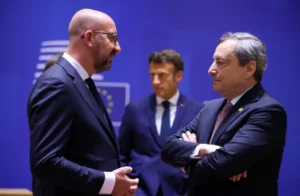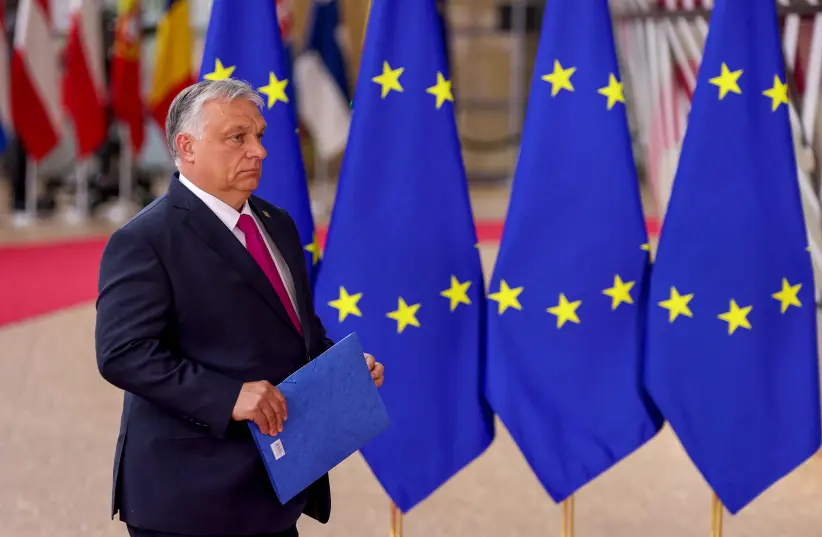The target to cut 90% of all Russian imports by the end of 2022 includes seaborne deliveries.

European Union leaders have agreed an embargo on Russian oil imports that will start kicking in towards the end of the year and which exempts, for now, pipeline imports that Hungary and two other landlocked Central European states rely on.
The toughest sanction yet on Russia for its invasion of Ukraine, agreed overnight after weeks of wrangling, aims to remove 90% of Russia’s crude imports into the 27-nation bloc by year-end, senior officials said.
“The purpose is to stop Russia’s aggressive war”
Latvian Prime Minister Krisjanis Karins
Two-thirds of the Russian oil imported by the EU comes via tanker and one third through the Druzhba pipeline.
The ban on the seaborne imports will be imposed with a phase-in period of six months for crude oil and eight months for refined products, a European Commission spokesperson said.

This means the target for refined products is effectively early 2023 rather than at the end of this year, since that timeline would kick in once the sanctions are formally adopted, with EU states aiming to do this week.
The target to cut 90% of all Russian imports by the end of 2022 includes seaborne deliveries as well as Poland and Germany stopping their own imports of Russian oil via pipeline by then, which they have pledged to do.
The remaining 10% would be temporarily exempt from the embargo so that landlocked Hungary, Slovakia and the Czech Republic have access to Russian oil from the Druzhba pipeline.
Oil prices extended a bull run after the EU’s agreement, stoking concern about inflation, which was run at a record high of 8.1 percent year-on-year in eurozone countries this month, Eurostat said on Tuesday.
Energy prices
With energy prices soaring, leaders will ask the EU’s executive Commission to explore ways to curb them, such as through temporary price caps, according to draft conclusions for their summit.
The draft, which could change before it is adopted, would also task Brussels with working on potential reforms to Europe’s electricity market – a move backed by countries including Spain and Greece but which countries including Germany have opposed.
Leaders are also set to endorse a Commission plan to wean itself off Russian fossil fuels within years through a faster rollout of renewable energy, improvements in saving energy, and more investments in energy infrastructure.
And they will call for better EU-wide contingency planning in case of further gas supply shocks. Moscow on Wednesday cut gas supplies to the Netherlands for refusing to comply with a demand to pay for gas in roubles, having already cut off Poland, Bulgaria and Finland.
Russian gas next target?
The oil embargo deal follows an earlier ban on Russian coal and allows the bloc to impose a sixth round of sanctions that includes cutting Russia’s biggest bank, Sberbank SBMX.MM, from the SWIFT international system.
But while several countries already want work to begin on the seventh round of sanctions, Austrian Chancellor Karl Nehammer said: “Gas can’t be part of next sanctions.”
Europe is heavily dependent on Russian gas, which explains why it has been left out of EU sanctions so far. The EU this month agreed a law requiring countries to fill gas storage to reach at least 80% ahead of next winter, in a bid to create a buffer against supply disruptions.
EU gas storage is currently 46% full.
“Russian oil is much easier to compensate…gas is completely different, which is why a gas embargo will not be an issue in the next sanctions package,” Nehammer said.

